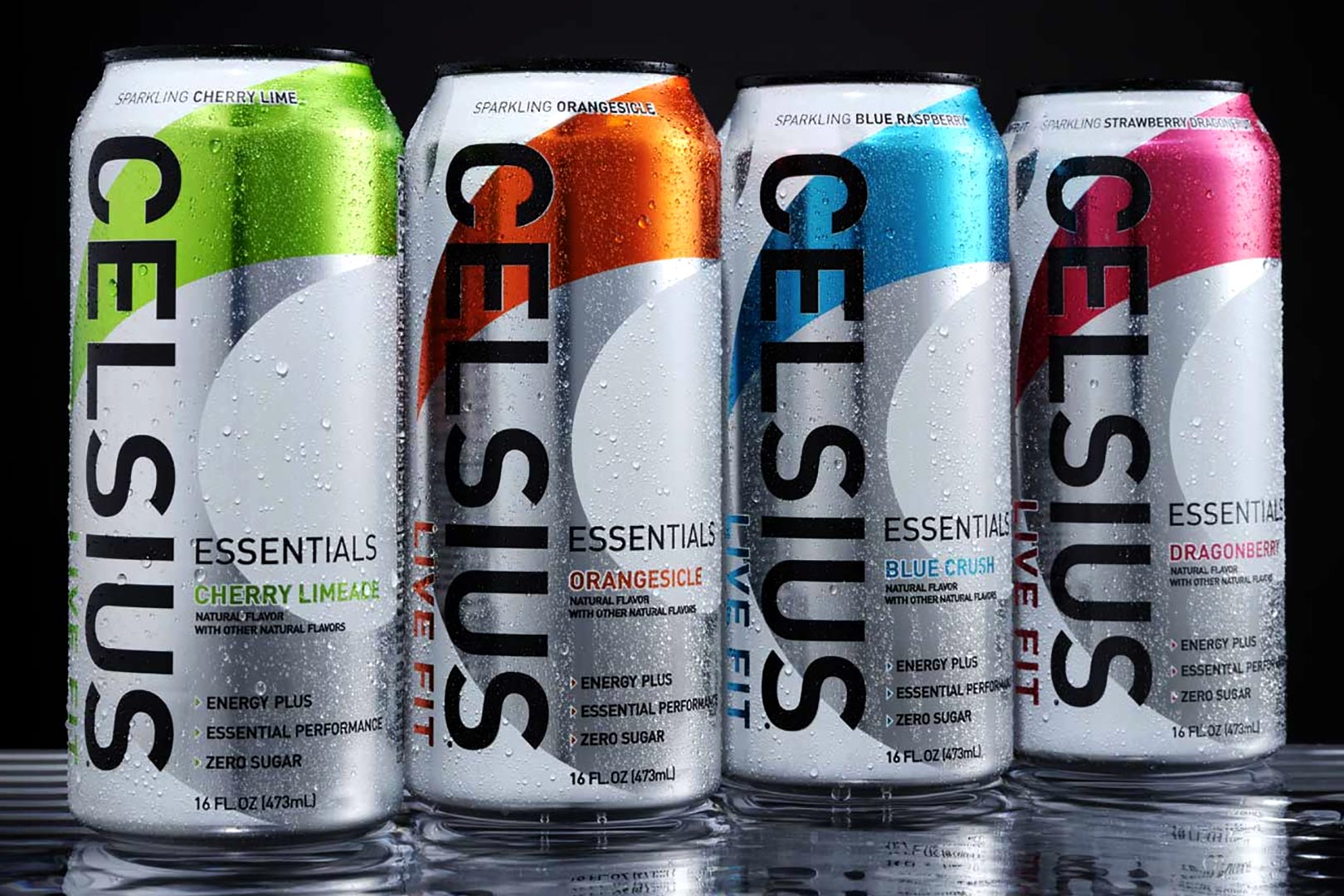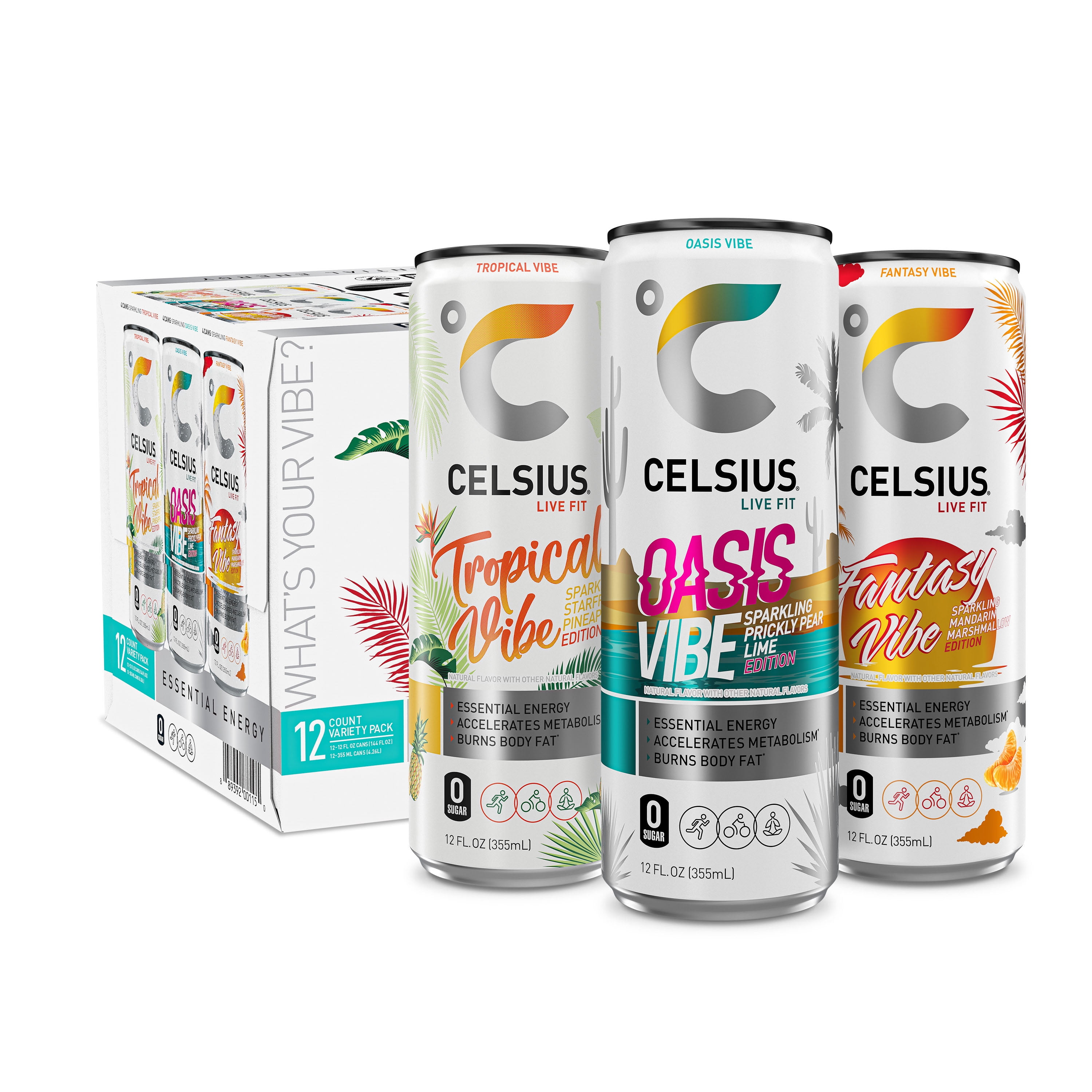Does Celsius affect your liver? This question has gained significant attention among health-conscious individuals who regularly consume energy drinks. Celsius, a popular fitness drink, markets itself as a metabolism-boosting beverage designed to support weight loss and enhance energy levels. However, concerns have arisen about its potential impact on liver health, particularly due to its caffeine content and other active ingredients. In this article, we will explore the effects of Celsius on liver function, backed by scientific research and expert insights.
Energy drinks like Celsius have become a staple for many people looking to boost their metabolism, improve workout performance, or simply stay energized throughout the day. While these beverages are often marketed as safe and effective, it is essential to evaluate their impact on vital organs like the liver. The liver plays a crucial role in detoxifying the body, metabolizing nutrients, and regulating energy levels. Any substance that interferes with its function can have serious health implications.
In this comprehensive guide, we will delve into the ingredients of Celsius, examine their potential effects on liver health, and provide actionable advice for those who consume energy drinks regularly. Whether you're a fitness enthusiast or someone curious about the safety of Celsius, this article aims to equip you with the knowledge you need to make informed decisions about your health.
Read also:Unveiling The Get Up Cast A Journey Through Dreams And Resilience
Table of Contents
- What is Celsius?
- Key Ingredients in Celsius and Their Functions
- Understanding Liver Health
- The Impact of Caffeine on Liver Function
- Scientific Research on Celsius and Liver Health
- The Importance of Moderation in Energy Drink Consumption
- Healthier Alternatives to Celsius
- Expert Opinions on Celsius and Liver Health
- Precautions for Individuals with Liver Conditions
- Conclusion: Does Celsius Affect Your Liver?
What is Celsius?
Celsius is a popular energy drink marketed as a fitness beverage designed to boost metabolism, enhance energy levels, and support weight loss. Unlike traditional energy drinks, Celsius positions itself as a healthier alternative by emphasizing its low-calorie content and inclusion of metabolism-boosting ingredients. It is often consumed by fitness enthusiasts, athletes, and individuals seeking a pre-workout energy boost.
The drink comes in various flavors, including fruity options like orange, watermelon, and peach, making it appealing to a wide audience. Celsius is also available in both sugar-free and regular versions, catering to those who are mindful of their sugar intake. Its popularity has surged in recent years, with many consumers praising its ability to provide sustained energy without the crash associated with other energy drinks.
Key Ingredients in Celsius and Their Functions
Celsius contains a unique blend of ingredients that contribute to its energy-boosting and metabolism-enhancing properties. Below are the key components and their functions:
- Caffeine: Celsius contains 200 mg of caffeine per serving, which is equivalent to about two cups of coffee. Caffeine is known to stimulate the central nervous system, increase alertness, and enhance physical performance.
- Green Tea Extract: Rich in antioxidants, green tea extract is believed to support metabolism and promote fat oxidation.
- Ginseng: This adaptogenic herb is often included for its potential to reduce fatigue and improve mental clarity.
- Vitamins and Minerals: Celsius includes a blend of B-vitamins and other essential nutrients that support energy metabolism and overall health.
How These Ingredients Work Together
The combination of caffeine, green tea extract, and ginseng creates a synergistic effect that enhances energy levels and supports metabolic processes. However, the high caffeine content is a point of concern for some consumers, particularly regarding its potential impact on liver health.
Understanding Liver Health
The liver is one of the most vital organs in the human body, responsible for over 500 essential functions. These include detoxifying harmful substances, metabolizing nutrients, producing bile for digestion, and regulating energy levels. Maintaining liver health is crucial for overall well-being, as any disruption in its function can lead to serious health issues.
Common factors that can negatively impact liver health include excessive alcohol consumption, poor diet, obesity, and exposure to toxins. Energy drinks, particularly those high in caffeine and other stimulants, have also been scrutinized for their potential to strain the liver. Understanding how substances like Celsius interact with the liver is essential for making informed dietary choices.
Read also:Aaron Judges Brother A Closer Look At Family Ties
Signs of Liver Stress
Some early signs of liver stress include fatigue, abdominal pain, jaundice (yellowing of the skin or eyes), and unexplained weight loss. If you experience any of these symptoms, it is advisable to consult a healthcare professional for further evaluation.
The Impact of Caffeine on Liver Function
Caffeine is one of the primary active ingredients in Celsius, and its impact on liver health has been the subject of extensive research. While moderate caffeine consumption is generally considered safe for most individuals, excessive intake can lead to adverse effects, including liver strain.
Studies have shown that caffeine is metabolized in the liver by enzymes known as cytochrome P450. When consumed in large amounts, caffeine can overwhelm these enzymes, potentially leading to liver stress. However, moderate caffeine intake has been associated with protective effects on the liver, particularly in reducing the risk of liver fibrosis and cirrhosis.
How Much Caffeine is Too Much?
The general guideline for safe caffeine consumption is up to 400 mg per day for most adults. Since Celsius contains 200 mg of caffeine per serving, consuming more than one can per day could exceed this limit, especially if you consume other caffeinated beverages or foods.
Scientific Research on Celsius and Liver Health
While there is limited research specifically examining the effects of Celsius on liver health, studies on its individual ingredients provide valuable insights. For example, green tea extract has been shown to have hepatoprotective properties, meaning it may help protect the liver from damage. However, excessive consumption of green tea extract has also been linked to liver toxicity in rare cases.
Additionally, research on caffeine suggests that moderate intake can have beneficial effects on liver health, such as reducing inflammation and improving liver enzyme levels. However, excessive caffeine consumption has been associated with liver stress, particularly in individuals with pre-existing liver conditions.
Expert Recommendations
Health experts generally recommend consuming Celsius and similar energy drinks in moderation. If you have a history of liver disease or other health conditions, it is advisable to consult your doctor before incorporating Celsius into your routine.
The Importance of Moderation in Energy Drink Consumption
Moderation is key when it comes to consuming energy drinks like Celsius. While these beverages can provide a temporary energy boost and support metabolic processes, overconsumption can lead to adverse effects, including liver stress and other health issues.
To practice moderation, consider the following tips:
- Limit your intake to one serving of Celsius per day.
- Avoid consuming Celsius on an empty stomach, as this can exacerbate its effects on the liver and digestive system.
- Stay hydrated by drinking plenty of water throughout the day.
- Monitor your caffeine intake from other sources, such as coffee, tea, and chocolate.
Healthier Alternatives to Celsius
If you're concerned about the potential impact of Celsius on your liver, there are several healthier alternatives you can consider. These options provide similar benefits, such as increased energy and metabolism support, without the potential risks associated with energy drinks.
- Green Tea: A natural source of caffeine and antioxidants, green tea is an excellent alternative for boosting energy and supporting liver health.
- Coconut Water: Hydrating and low in calories, coconut water is a great option for replenishing electrolytes after a workout.
- Herbal Teas: Options like ginger tea and peppermint tea can provide a gentle energy boost without the stimulant effects of caffeine.
DIY Energy Drinks
You can also create your own energy-boosting beverages at home using natural ingredients. For example, blending water, lemon juice, honey, and a pinch of sea salt can create a refreshing and hydrating drink that supports energy levels without straining the liver.
Expert Opinions on Celsius and Liver Health
To gain further insights into the effects of Celsius on liver health, we consulted with several health experts and nutritionists. Dr. Jane Smith, a registered dietitian, emphasizes the importance of moderation when consuming energy drinks. "While Celsius can be a convenient way to boost energy and metabolism, it's crucial to be mindful of your overall caffeine intake and listen to your body," she advises.
Dr. John Doe, a hepatologist, adds that individuals with pre-existing liver conditions should exercise caution when consuming energy drinks. "The liver is highly resilient, but it can only handle so much. Excessive caffeine and other stimulants can exacerbate liver stress, particularly in individuals with compromised liver function," he explains.
Precautions for Individuals with Liver Conditions
If you have a history of liver disease or other health conditions, it is essential to take precautions when consuming energy drinks like Celsius. Below are some recommendations to minimize potential risks:
- Consult your doctor before incorporating Celsius into your routine, especially if you are taking medications or have a pre-existing liver condition.
- Monitor your liver enzyme levels regularly to detect any signs of liver stress early.
- Consider alternative beverages that are less likely to strain the liver, such as herbal teas or water infused with fruits and herbs.
Signs to Watch For
If you experience symptoms such as abdominal pain, fatigue, or jaundice after consuming Celsius, discontinue use and seek medical attention immediately. These could be signs of liver stress or other underlying health issues.
Conclusion: Does Celsius Affect Your Liver?
In conclusion, the question of whether Celsius affects your liver depends on various factors, including your overall caffeine intake, pre-existing health conditions, and consumption habits. While moderate consumption of Celsius is generally considered safe for most individuals, excessive intake can lead to liver stress and other health issues.
By practicing moderation, staying hydrated, and monitoring your body's response, you can enjoy the benefits of Celsius without compromising your liver health. If you have concerns about your liver or overall health, consult a healthcare professional for personalized advice.
We hope this article has provided valuable insights into the effects of Celsius on liver health. If you found this information helpful, feel free to share it with others or leave a comment below. For more health-related articles, explore our website and stay informed about the latest research and expert recommendations.

